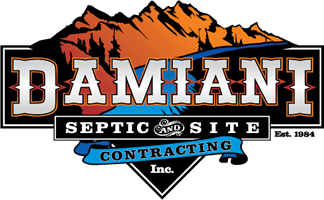I think I need a new septic system, what do I do next?
Call 215-234-4123……We can help and are happy to consult, and then I suggest that your next call should be to a soil and environmental consulting firm (SECF). We have included a short list of some of the better consultants that serve the south eastern PA region on our links page.
A SECF generally will employ a certified soil scientist, a qualified designer/draftsman , and Staff who are experienced in walking you through the complicated Permitting process as required by your County Health Department or local municipality.
In some cases it is a good investment to have a onsite system certification inspection performed in order to locate all existing system components, look inside underground piping, tanks, and drainfield via a pipe video camera, to determine what caused the system to fail, and evaluate the most economical and efficient repair options. We can put you in touch with honest qualified professionals that provide this service as well.
Does Damiani Septic and Site Contracting offer certification inspections?
We are more than willing to come to your property at no charge, and talk with you about what may be causing your onsite septic issue and determine if the problem may be a simple fix that does not require a Permit.
We are Septic System repair and installation specialists.
It is our opinion that to perform a certification inspection which on an older system more often than not results in the need for a permitted repair/replacement, and then suggest that we are also your best option to do the work, presents a conflict of interest. Our services generally start after you have obtained a permitted design for installation or repair.
What should I do after I have my system installed?
It’s a real good idea to create a file for all of your septic system paper work. This would include the original signed Permit, a copy of the design for installation, and have the contractor mark the plan as an as built plan to highlight any field changes that may deviate from the plan. An accurately marked plan will be a valuable resource for you and for future home owners when you plan an addition, swimming pool , landscaping or additional parking. This file should also contain all system component manuals, and warranty information, and a record of pumping and service dates with notations of any adjustments, upgrades, or repairs performed.
And of course contact information for your installer, designer, and maintenance provider.
What about pumping and maintenance?
Pumping and cleaning the septic tank is the most fundamental and important aspect of maintenance that a homeowner can arrange. Many township municipalities are beginning to implement pumping and maintenance ordinances in order to remind and mandate that homeowners implement the minimal responsibilities associated with onsite septic treatment. The rule of thumb for tank pumping intervals is once every three years. This can vary plus or minus a year depending on the size of your family.
You may also want to consider contracting with a qualified maintenance service provider to take care of all of this for you. A maintenance contract is highly recommended for some of the newer systems that employ filters, valves, and micro processors’ to treat the effluent produced by a home. Having a knowledgeable contractor maintain your system including annual or semiannual site visits to keep an eye on the various components, connections, pumps , and filters can pay big dividends in the long term performance, and cost of future repairs. Routine scheduled maintenance not only can minimize the likelihood of an emergency, it also makes you a top priority should an emergency arise. A maintenance contract may be more reasonably priced than you think.
